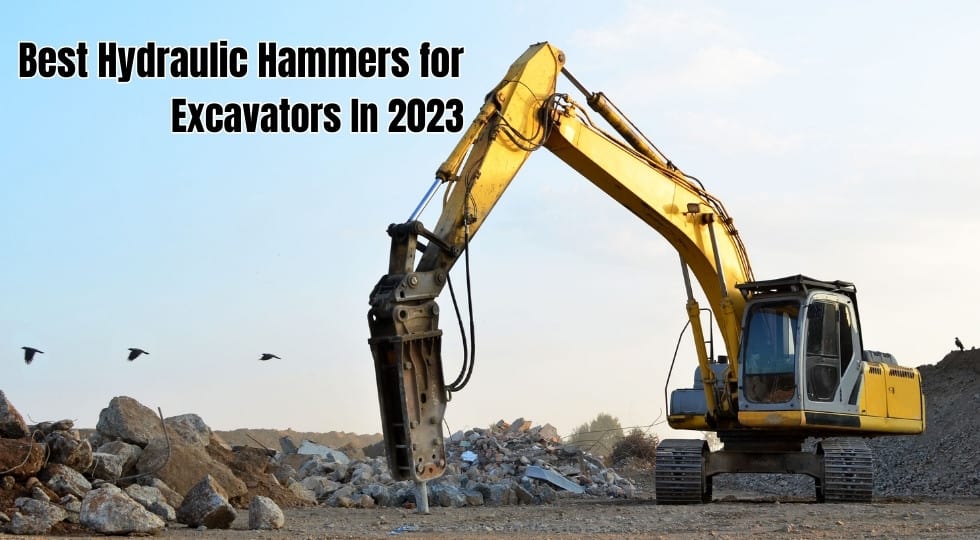Many high-quality hydraulic hammers for excavators are available in the market. Hydraulic hammers are handy because you can use them for many jobs on a construction site. They can also use in some industries, such as mining. The best hydraulic hammers for excavators depend on a few factors, such as the size and weight of the excavator, the type of work you want to do, and the buyer’s budget.
The top hydraulic hammers for excavators:
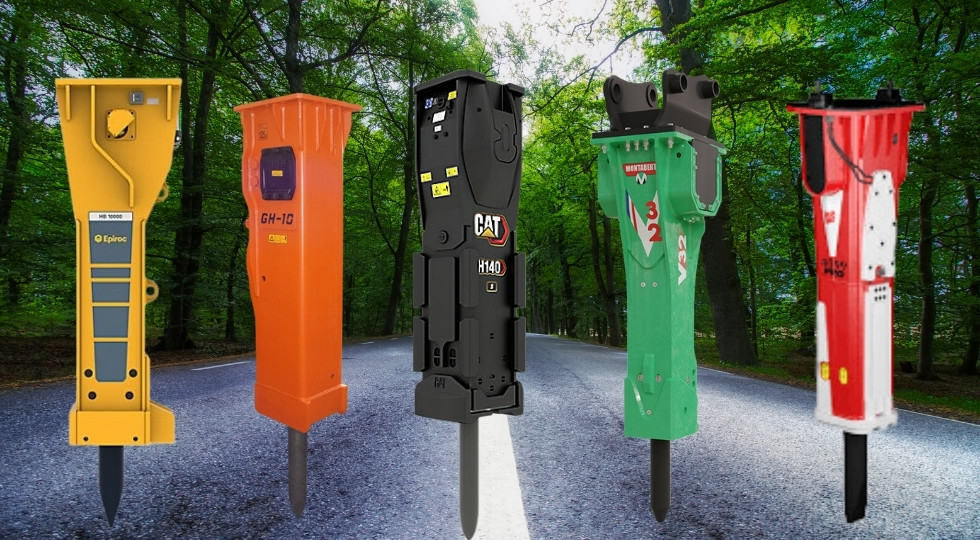
Atlas Copco HB 10000: The hydraulic hammer is best for large excavators, has a high impact energy, and is ideal for breaking hard materials such as concrete and rock.
NPK GH-10: The hydraulic hammer is compact and suitable for mid-sized excavators. It is versatile, and you can use it for various applications, from demolition to quarry work.
Caterpillar H140DS: The hydraulic hammer is used with Cat excavators and is ideal for heavy-duty demolition. It has a significant impact force.
Soosan SB81: The hydraulic hammer is excellent for excavators ranging from 18-26 tons and for rock breaking and demolition. It has a powerful impact force and needs low maintenance.
Montabert V32: The hydraulic hammer suits mid-sized excavators and demolition work. It has high-impact energy and does a great job of withstanding harsh conditions.
Rammer 9033: The hydraulic hammer has come for heavy-duty applications, and you can use it with 55-100 tons of excavators. It has a high impact energy of 7,000 joules and suites for breaking up large boulders, concrete, and other materials.
Stanley MB10EXS: The hydraulic hammer is designed for light to medium-duty applications, and you can use it with mini excavators weighing 3-6 tons. It has high-impact energy and is best for breaking up small rocks, concrete, and other materials.
The best hydraulic hammer for an excavator depends on the user’s needs.
Types of Hydraulic Hammer
A hydraulic hammer is also known as a hydraulic breaker. It is a construction tool that you can use to break up concrete, rock, and other hard materials. It is usually attached to an excavator or a skid steer loader and uses hydraulic power to deliver high-impact blows to the broken material.
Standard Hydraulic Hammers: These are the most common hydraulic hammers best for general demolition work.
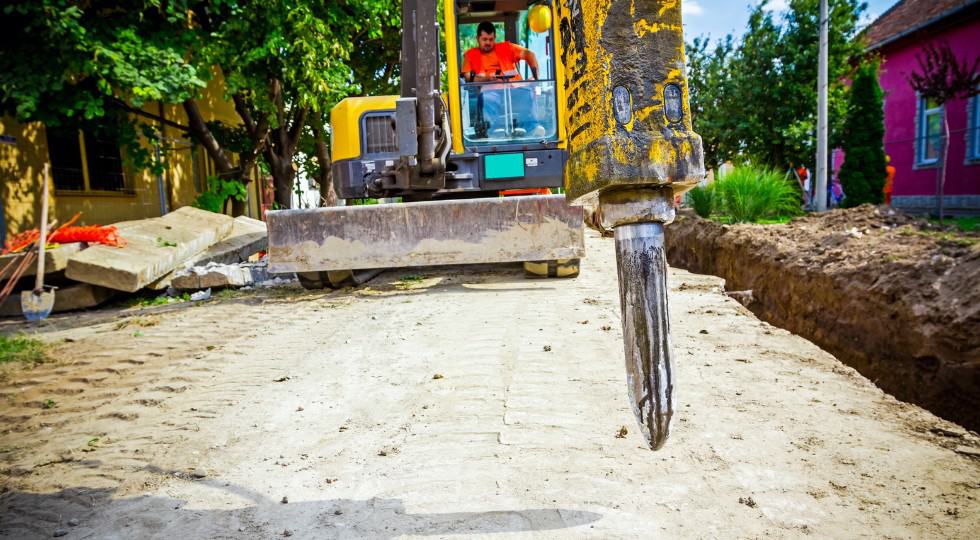
Silenced Hydraulic Hammers: These hammers come to reduce noise levels, making them suitable for use in residential areas or other noise-sensitive environments.
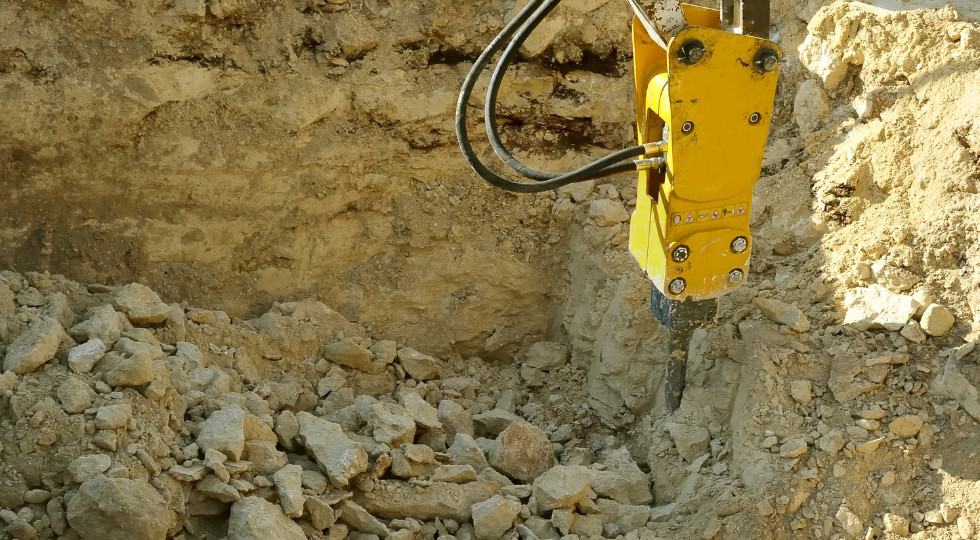
Heavy-Duty Hydraulic Hammers: These are designed for heavy-duty applications, best for breaking up large boulders or concrete slabs.
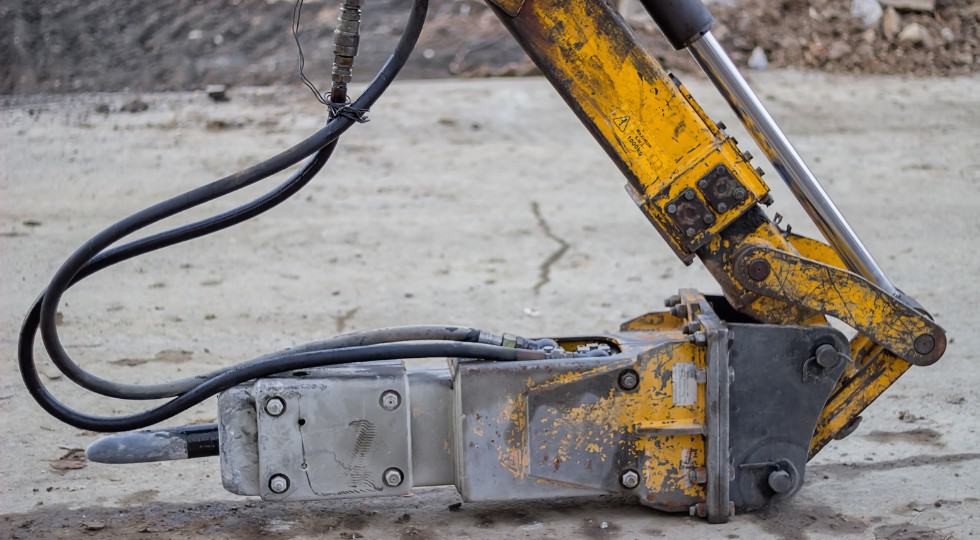
Mini Hydraulic Hammers: These hammers are designed for use with mini-excavators and are best for light-duty applications.
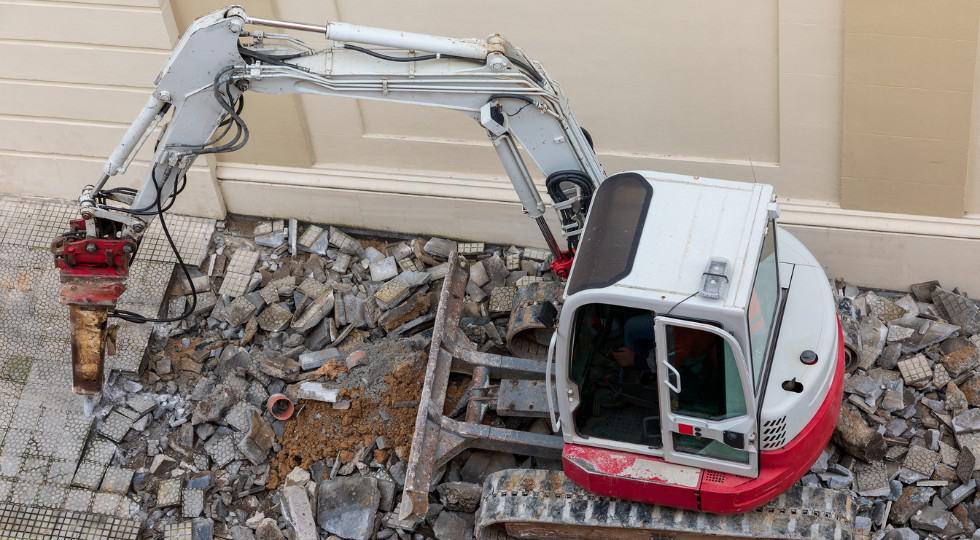
Backhoe Hydraulic Hammers: These hammers are designed to be attached to the back of a backhoe, making them great for digging and breaking up materials in tight spaces.
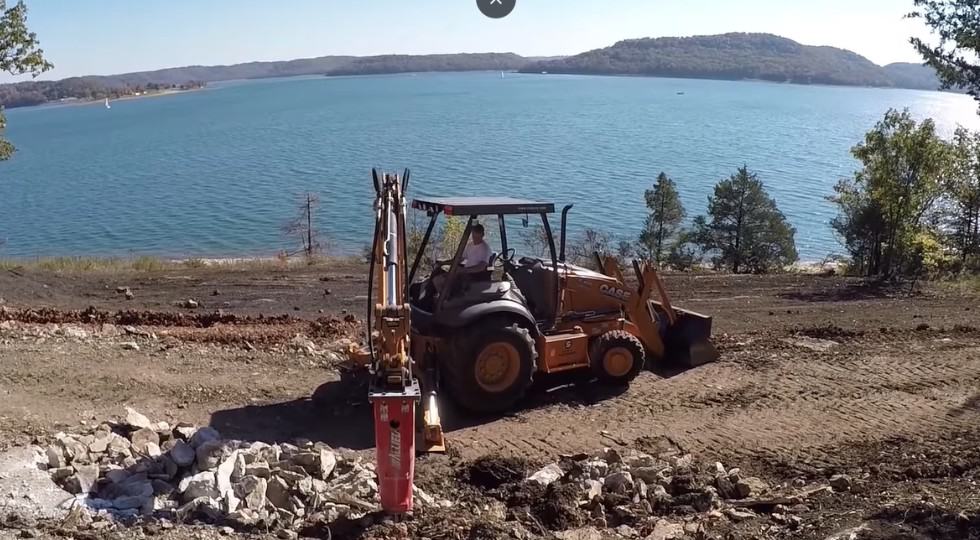
Skid Steer Hydraulic Hammers: These are best for a skid steer loader and for light to medium-duty applications.
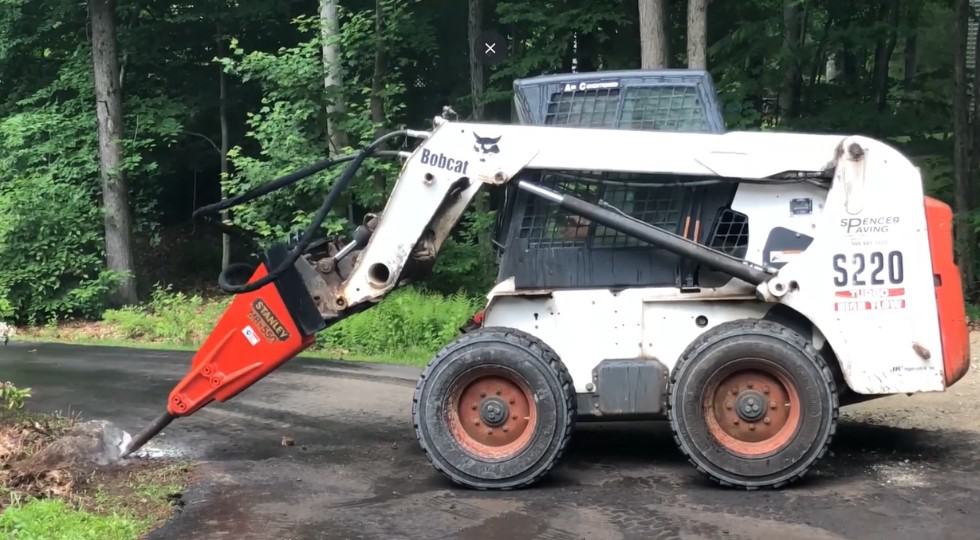
Choose the Best Hydraulic Hammers
Evaluate Your Needs
When choosing a hydraulic hammer, evaluating your needs and choosing one compatible with your excavator’s size and weight is essential. Your hammer must deliver the needed power to break up the materials. More it Determines the type of application you will use the hydraulic hammer. Because the right hammer with the right impact energy and other specifications to get the job done efficiently.
You also have to Consider how often you will use the hydraulic hammer. If you use it frequently, it should be durable and reliable. The noise level should be acceptable for your work environment. If you must work in a noise-sensitive area, consider a silenced hydraulic hammer that produces less noise. Budget is essential thing when choosing a hydraulic hammer.
At the same time, it is crucial to choose a high-quality hammer but stay within your budget. The reputation of the brand and dealer matters a lot when choosing a hydraulic hammer. Look for brands and dealers with a good reputation for quality and customer support.
Comparison of the Costs of Hydraulic Hammers
The cost of hydraulic hammers can depend on their specifications and brand.
Impact energy: The impact energy of the hydraulic hammer is an essential factor affecting the cost. Hammers with higher impact energy tend to be more expensive.
Brand: The brand of the hydraulic hammer can also affect the cost. Well-known brands with a reputation for quality tend to be more expensive than lesser-known brands.
Size and compatibility: The size and compatibility of the hydraulic hammer with the excavator can also affect the cost.
Maintenance requirements: The maintenance requirements of the hydraulic hammer can also affect the cost.
Dealer support: The dealer’s support can also affect the cost. Dealers that offer extensive support and training tend to charge more for their products.
Hydraulic hammers can range from a few thousand dollars for smaller hammers to tens of thousands for larger, high-impact energy hammers.
Buy the Right Hammer for the Job
Evaluate your needs and determine the application type you will use the hammer. Also, remember the size and weight of your excavator, the type of material you will break, and the frequency of use. You should research different hydraulic hammer options and compare their specifications, such as impact energy, compatibility, noise level, and maintenance requirements.
Remember your budget for the hydraulic hammer and consider the costs of different options, like maintenance costs and any additional accessories. You should also consult experts in the field, such as dealers and manufacturers, for their recommendations and insights on which hammer would best suit your specific needs. They can help you determine which hammer would be most effective and efficient for your application. Whenever possible, test the hammer before purchasing to ensure it performs as expected and meets your needs.
Table of specification of Hydraulic Hammers for Excavators
| Type of Hydraulic Hammer | Suitable Excavator/Loader Size | Impact Energy | Noise Level | Weight | Suitable Applications |
|---|---|---|---|---|---|
| Standard Hydraulic Hammer | 1-120 tons | 150-15000 Joules | 100-120 dB | 50-15000 kg | General demolition work |
| Silenced Hydraulic Hammer | 1-120 tons | 150-15000 Joules | 65-85 dB | 50-15000 kg | Noise-sensitive environments |
| Heavy-Duty Hydraulic Hammer | 20-200+ tons | 15000-30000+ Joules | 120-140 dB | 5000-30000+ kg | Breaking large boulders or concrete slabs |
| Mini Hydraulic Hammer | 0.5-12 tons | 50-5000 Joules | 100-120 dB | 50-1000 kg | Light-duty applications |
| Backhoe Hydraulic Hammer | 2-12 tons | 1000-8000 Joules | 100-120 dB | 100-1500 kg | Digging and breaking up materials in tight spaces |
| Skid Steer Hydraulic Hammer | 0.5-5 tons | 50-5000 Joules | 100-120 dB | 50-500 kg | Light to medium-duty applications |
These specifications are approximate and depend on the specific make and model of the hydraulic hammer. It is essential to consult with the manufacturer or dealer to determine the most suitable hydraulic hammer for your needs.
conclusion
The best hydraulic hammer for excavators involves evaluating your needs and considering factors such as application type, excavator size, frequency of use, noise level, budget, maintenance requirements, and brand reputation. Contact us for more pieces of information.

